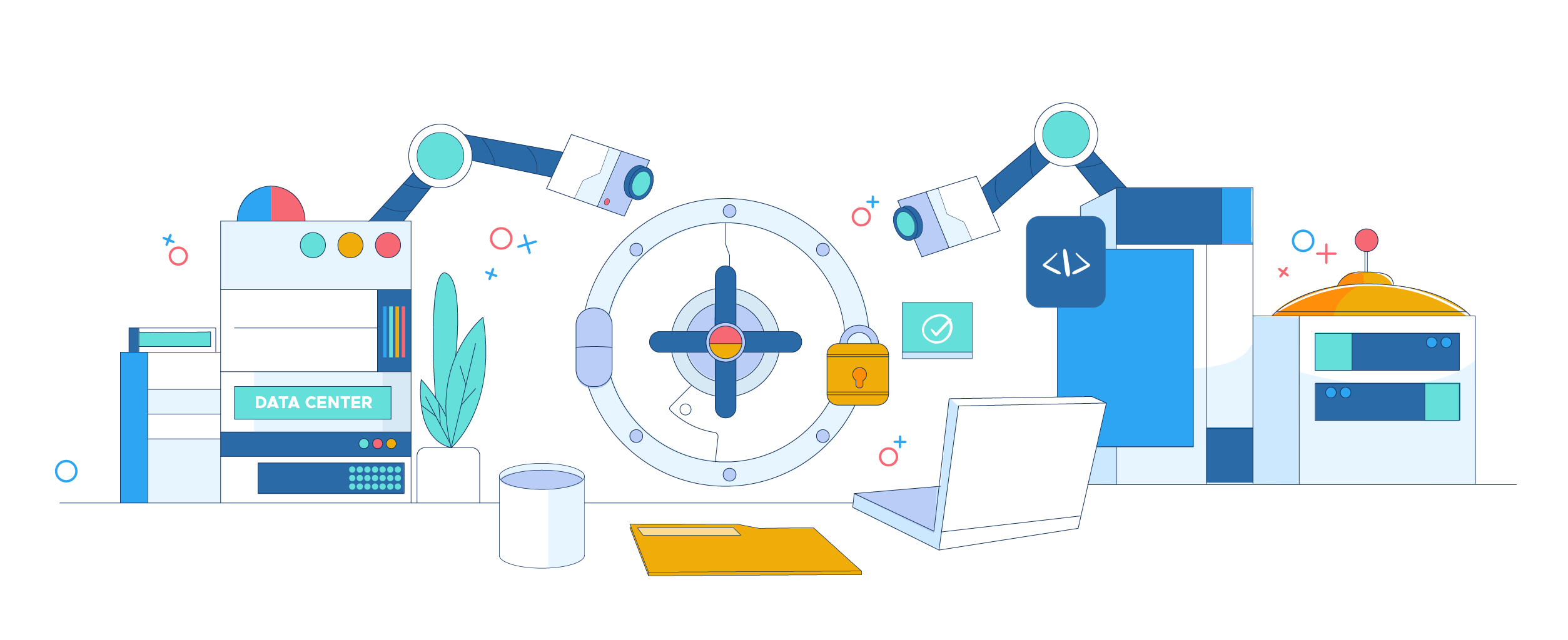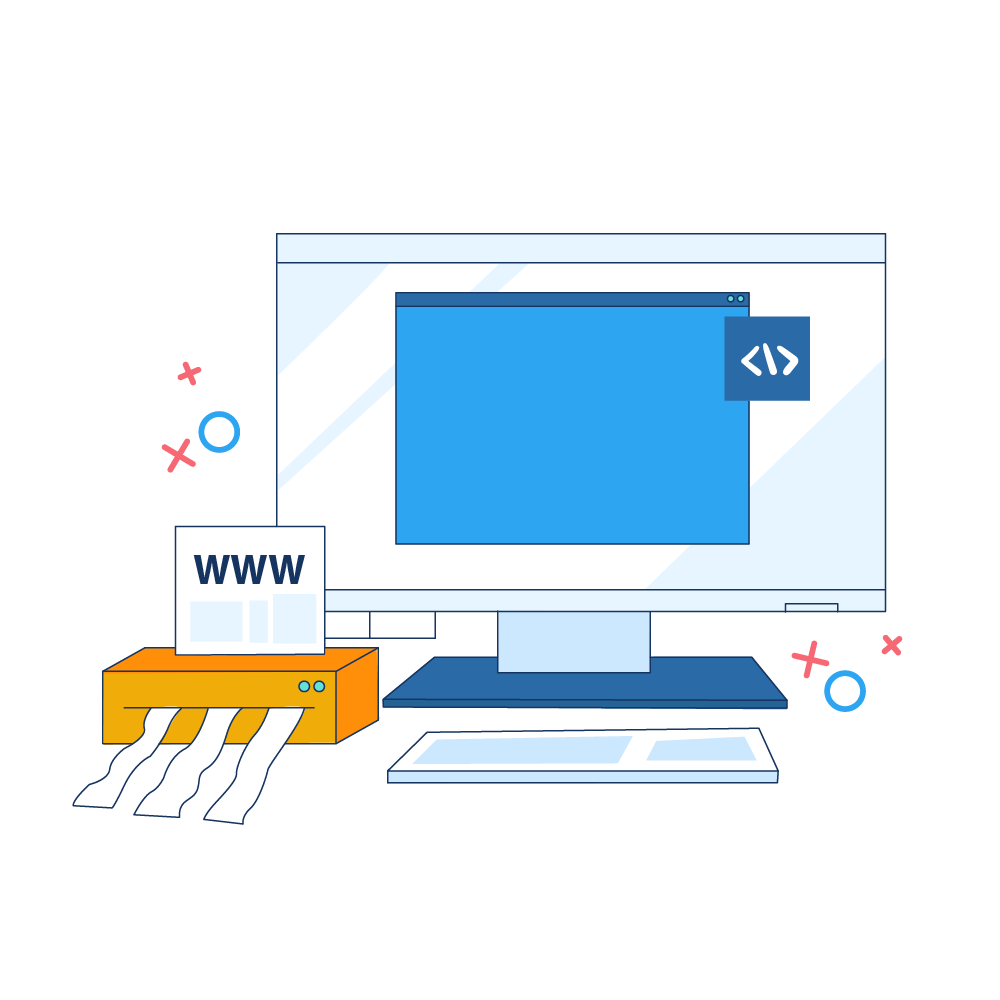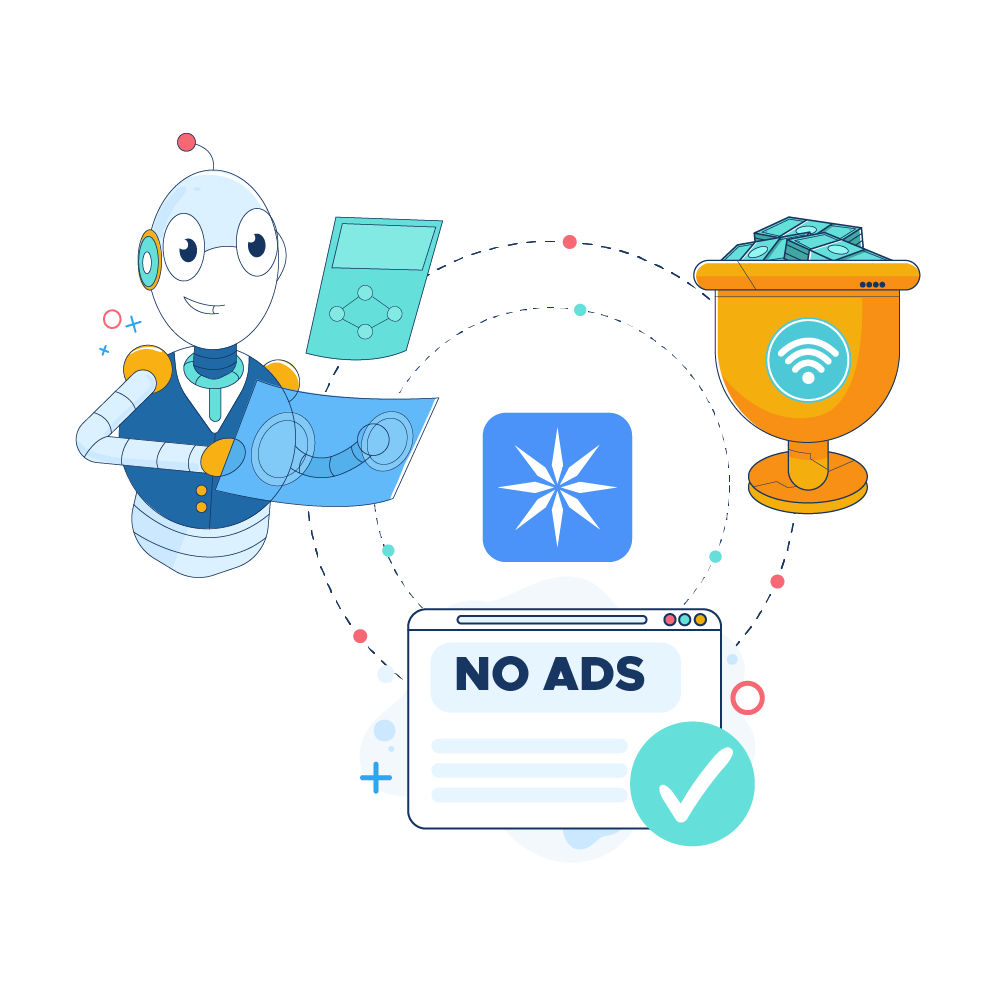ROTATING RESIDENTIAL PROXIES
Special Rotating Proxies
Rotating residential proxies with worldwide geo targeting optimized for high success rates.
Basic Rotating Proxies
Rotating residential proxies with random geo location.
Fast Rotating Proxies
Rotating residential proxies with worldwide geo targeting optimized for scraping and data gathering.
On Demand Proxies
Residential proxies with on demand rotation, geo targeting using user and password authentification.
How to obtain online data without getting blocked

The amount of business-related information increases every day and the necessity to obtain valuable data without getting blocked becomes vital for many companies that rely on the acquired content to develop or enhance products and commercial services for customers.
But as the importance of the online environment is now obvious for most companies, the same observation can be raised for malicious actors who spend time and money to obtain sensitive information for illegal purposes.
It is therefore quite normal to notice that website owners and administrators have equally doubled their efforts to maintain the security of the online sources they control.
And this is where users interested in extracting online data from public sources started to encounter a number of issues as numerous websites raised the security barriers keeping a close eye on visitors’ actions and sometimes restricting access to those spending too much time on their platforms.

Though this growing interest for online security and privacy is only normal and we should all keep our websites safe, we have to say that many businesses rely on the quality of the public data they obtain in web scraping activities to keep growing and offering better services.
How do we satisfy these important business needs? How do we respect the need for security while managing to obtain the content we require for further development?
These are the major questions companies focus upon when going out there trying to find a middle ground between online security and data availability.
Now, before we can find the answers we need, we should start by acknowledging how we can continue to obtain the targeted data and avoid any web traps and barriers that may expect us online.
4 Easy Steps To Protect Your Web Scraping Activities

1. Hide your IP address with a reliable proxy server solution
Companies interested in web scraping need to make sure the IP addresses they use for browsing should offer some degree of protection against online restrictions.
This is the most important element for any business that depends on the web data it extracts. And if the IP address you use is blacklisted for any reason, then it’s game over for your web scraping campaign.
At the same time, it is equally important for an IP address to permit users not only stable data extraction sessions but a high degree of privacy so that competitors wouldn’t know you’ve been scraping their websites for marketing or product-related content.
Since these business needs have been observed for some time by numerous companies, the obvious step for them was to uncover the perfect online tools that can overcome any online barriers.
The answer resided indeed in the high-quality proxy server solutions that offer easy access and online privacy to those looking for valuable content.
As for the exact proxy solutions to be used, we can clearly focus on the popular residential proxies that have been assisting users for many years in getting the data they need in complete privacy.
Since the user choice of proxies highly depends on the targeted content and difficulty of the scraping job, rotating residential proxy solutions have always been recommended for their capacity of delivering home network IPs and a rotating mechanism.
2. Hide your browser fingerprint with a headless browser
When we talk about a browser fingerprint, we are referring to the pieces of information that are revealed by our browsing history every time we access an online location or we try to extract data from a website.
Though it may seem like a negative element for online visitors, we have to say that browser fingerprinting emerged in an attempt to check and further restrict any dangerous web activity that may pose a threat.
To keep it simple and to offer a better overview, we need to say that the main fingerprints which may offer private details about us are the IP addresses we use, our browsers, and finally the way we behave in the online sphere.
Since the IP fingerprint may be solved with a strong proxy solution that replaces our exit IP address, the browser fingerprint is a bit more complicated to be solved since the websites we visit work to collect private information for ad-related purposes by analyzing the online traces we leave behind.
Though, most of the time, these actions occur in an attempt to deliver more suitable ads for visitors, browser fingerprinting remains a privacy breach as websites have easy access to some of our systems and browsing details easily.
Is there any way to solve this problem?
Probably the easiest way to solve this issue is to use a headless browser that is designed to help users obtain data via a direct command interface.
As the headless browser lacks visual details and does not offer the targeted websites any browser fingerprints, the online sources have no means to obtain private data about you.
It is of course advisable to add a proxy server solution to your headless browser in order to protect not only your browsing details but your genuine IP address.
3. Don’t engage in complex scraping jobs with a single IP address
Users who are already accustomed to engaging in complex web scraping jobs are fully aware that you may have the best software tools for targeting the locations you want but unless you are ready to invest in reliable proxy server solutions, your data extraction activities won’t take you far.
This is happening for a very simple reason and it’s related to the IP address you use.
Now, we are not saying that your normal IP address is not good enough for web scraping jobs, but since you’ll most probably target a great number of websites and some of them have already installed anti-scraping mechanisms, you’ll soon find yourself blocked from accessing the desired locations.
And it’s not a question of ‘if you get caught’ because websites that contain valuable content have already installed several protection barriers that are meant to deter online visitors who look for private or public information.
How do we solve this issue?
Proxies are again ready to save the day as the user can choose the right residential proxy solutions from various providers.
And if for somehow easier data scraping tasks users can choose static residential proxies that come at great prices, are easy to be acquired, and offer superior speeds - for more difficult data extraction campaigns users can go for rotating residential proxies that offer the possibility to rotate the exit IP addresses on a regular basis for the best data access.
4. Scrape as a human, not as a machine
Web scraping started initially as a simple online search for data on various websites, more or less protected, more or less relevant for business purposes.
And when the need for more information occurred, the online scraping tools were set to target and extract the required content as fast as possible.
But since this rather direct web scraping method encountered a growing resistance in the online space for security and privacy-related reasons, data extraction tools were forced to respect a set of rules and best practices.
Some of the best practices suggest users interested in web scraping to constantly change the way they conduct data extraction so they won’t get blocked from further access. To keep it short, the idea is that the user should behave more like a human and less as a machine.
That’s why, if as a user you take a break from your scraping attempts and you start browsing for a temporary period of time as a normal visitor, you shouldn’t be detected and blocked by the site admin.
At the same time, advanced proxy server solutions - or the so-called rotating residential proxies - have been envisioned to allow users engaged in scraping activities to change the exit IP addresses on a regular fashion to mimic human behavior and avoid spending or scraping too much content on a website with the same IP addresses.
Further on, residential proxies that come from regular home networks allow users to browse online with IP addresses belonging to real people - from actual residential locations - an element that provides multiple advantages to those trying to extract content as they appear as normal people surfing the web.
So, even though users may try to employ various tactics when scraping online sources, the most important factor in acting more like a human (and less as a machine) is represented by the ability of the rotating residential proxies.
Conclusions
The search for valuable business-related data in the online environment is a normal activity for every major company and so are the various protection mechanisms imposed by some websites.
All these security measures that are in place are intended to disclose a user’s identity and intentions on the visited platforms.
At the same time, since these web mechanisms work most of the time in an automatic fashion, recording as many details as possible about the visitors - from the browser and system information to the IP address - an online restriction or ban can be avoided by following some of the steps we’ve revealed.
All these efforts might seem a bit over the top for a normal user, but companies that require to find the data they need have no problems in following these recommendations.
It goes without saying that in the grand scheme of things, proxy server solutions play the most important part for companies involved in data extraction activities that need to obtain data without getting blocked.
For more information on the elements that give visitors’ details away restricting them from accessing the required content, please check the article dedicated to the major fingerprints that block data extraction activities.
This category's latest stories

3 Major Web Scraping Cases for Companies
Do you want to discover the major web scraping cases for companies that use proxies? Check our article and find out how proxies can support your business!

What Is Web Scraping And How It Can Support Your Business
Are you looking to obtain the right business data via web scraping jobs? Find out how web scraping can support your company’s interests.

Which proxies are better for web data scraping?
Which proxies do a better job for web data scraping operations? Which ones are better for your business projects?
Featured Articles

News
02.12.2024
Introducing Ice Payments on Shifter
Discover seamless crypto transactions with Ice payments on Shifter. Streamline your proxy service purchases and unlock new opportunities with Ice integration.

Residential Proxies
04.04.2023
8 Myths About Proxies. What You Should Know?
Are you aware of all the myths and stories surrounding proxies? Check our article and test your knowledge of proxies’ true limits in the online environment.

News
03.21.2023
Looking for an Alternative to Pi Network? Why ice Network is the Perfect Solution
Find more about the tremendous advantages of the ice Network and mining ice coins, as many are starting to take notice, ultimately choosing to leave Pi Network to have access to better, more rewarding opportunities.
Shifter's legacy
Shifter was founded in 2012, as one of the first residential proxy providers, since then it has become one of the leading proxy networks in the world and it's used by more than 25.000 clients including Fortune 500 Companies. Users can connect from anywhere to access local data without any restriction, while preserving a high degree of privacy and security.